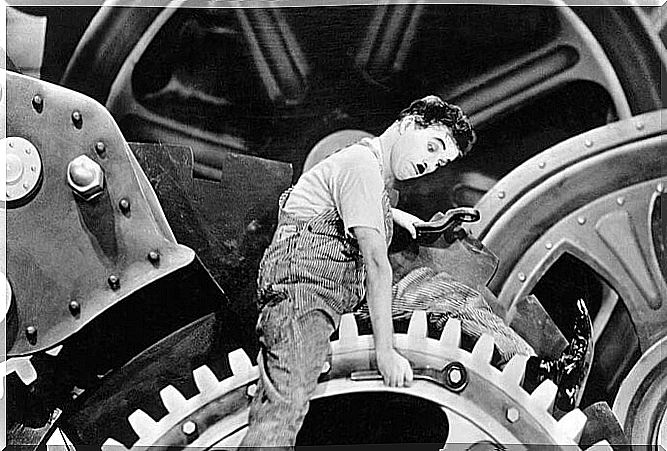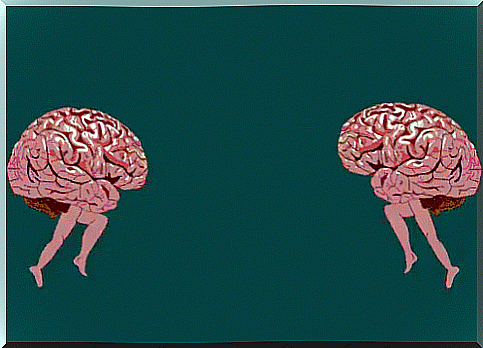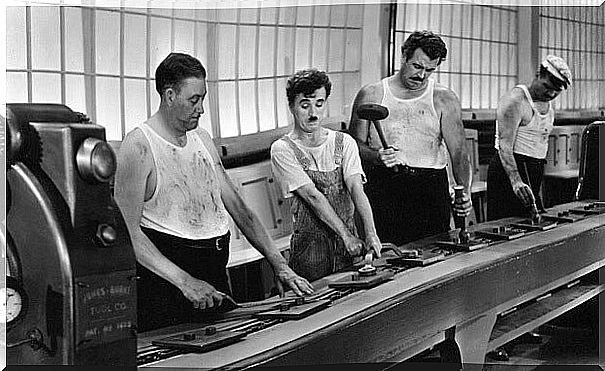The “functional Stupidity “: The Great Demand In Many Companies

As much as it costs us to say it out loud, it is evidence: to this day functional stupidity is still the main driver in many organizations. Creativity is not appreciated, having critical thinking is a threat for that businessman who prefers that nothing changes and who seeks above all docile employees.
We are aware that in our space we have spoken on more than one occasion about the great human capital that a creative brain can offer to an organization. However, thinking differently, being more free and connected to our intuitions, is sometimes more of a problem than an advantage in our work environments.
It is hard to say. We know, however, that each organization is like a peculiar island with its own dynamics, policies, and internal climates. There will be companies that are an example of innovation and efficiency. However, to this day, the intended change has not yet been implemented. Large corporations and even small companies are looking for people who are prepared, no doubt, but also who are manageable, caring and quiet.
Innovation based on that human capital that is born from an open, flexible and critical mind is a danger. It is because management continues to fear new ideas. Because our organizations continue to be based on a strict scale, on a vertical scheme where the authority exercises voracious control. At the same time, coworkers also tend to view with discomfort that voice that brings new ideas, and therefore, puts them in evidence by highlighting capacities that they themselves do not have.
It is a complex reality that we want to reflect on.

Functional stupidity, the great winner
Mats Alvesson, professor at the “School of Economics and Management” at Lund University (Sweden) and Andre Spicer, professor of organizational behavior, have written a very interesting book on the subject entitled “ The Stupidity Paradox”. Something we all know is that we live in a present day where words like “strategy” or “management” carry a lot of weight.
Competencies based on creativity or “Mental System Management” (MSM) are appreciated, but from valuing to allowing them to be applied is quite another thing, in fact, an uncomfortable abyss stretches. Because innovation is too expensive, because it will always be better to stick with what already works rather than risk trying what is not yet known. All of this contributes to a reality that is as stark as it is desalination: the economy based on innovation, creativity and knowledge is more of a dream than a clear reality.
At the same time, another aspect must be taken into account. The bright and well-trained person is also someone in need of a job. In the end, you will take on routine and less prestigious tasks because resignation and the assumption of functional stupidity is essential to keep the job.
It won’t matter your training, your ideas or your fabulous skills. If you raise your voice, your predators appear in the second : managers and less brilliant and creative colleagues who will ask you for silence within that flock of white sheep. Because you put them in evidence, because your ideas would break the “iron assembly line” based many times on perpetuating your own mediocrity.

Problems to ponder
Mats Alvesson and André Spicer, authors of the aforementioned book, The Stupidity Paradox, indicate that there are four aspects that underlie this problem:
- We seek to please those who have power in the organization.
- We have the need not to cause problems and not to say things to certain people that they do not want to hear.
- The third problem is that, many times, being a “functional stupid” makes everything go more or less well : we keep our jobs and we are accepted.
- The fourth problem is obvious: the vast majority of current jobs demand this feature. If you want to get promoted and even more, keep your job, it is better to be caring, helpful and not question what is done.
Many define our current system as an economy based on innovation, creativity and knowledge. However, we could almost safely say that only 20% are putting it into practice. So what happens to all those shiny brains? With so many people willing to give their best?
Possibilities and changes
We spend a large part of our school and academic life looking for our “element”, as Sir Ken Robinson would say, that dimension where our natural aptitudes and personal inclinations converge so that in the end, when it is time to enter the world of work, everything fails. Surrender is not good, becoming one more piece of a nineteenth-century and discriminatory engine will not make things change.
Perhaps the creative brain must also be trained in courage and initiative. In taking risks and getting out of these outdated circles to create new companies capable of offering innovative services to an increasingly demanding society. Big changes don’t come overnight. But with the daily rumor, with that slow but constant crunch that always precedes the opening of something new and unstoppable.
Main image “Modern times”, Charles Chaplin (1936)









